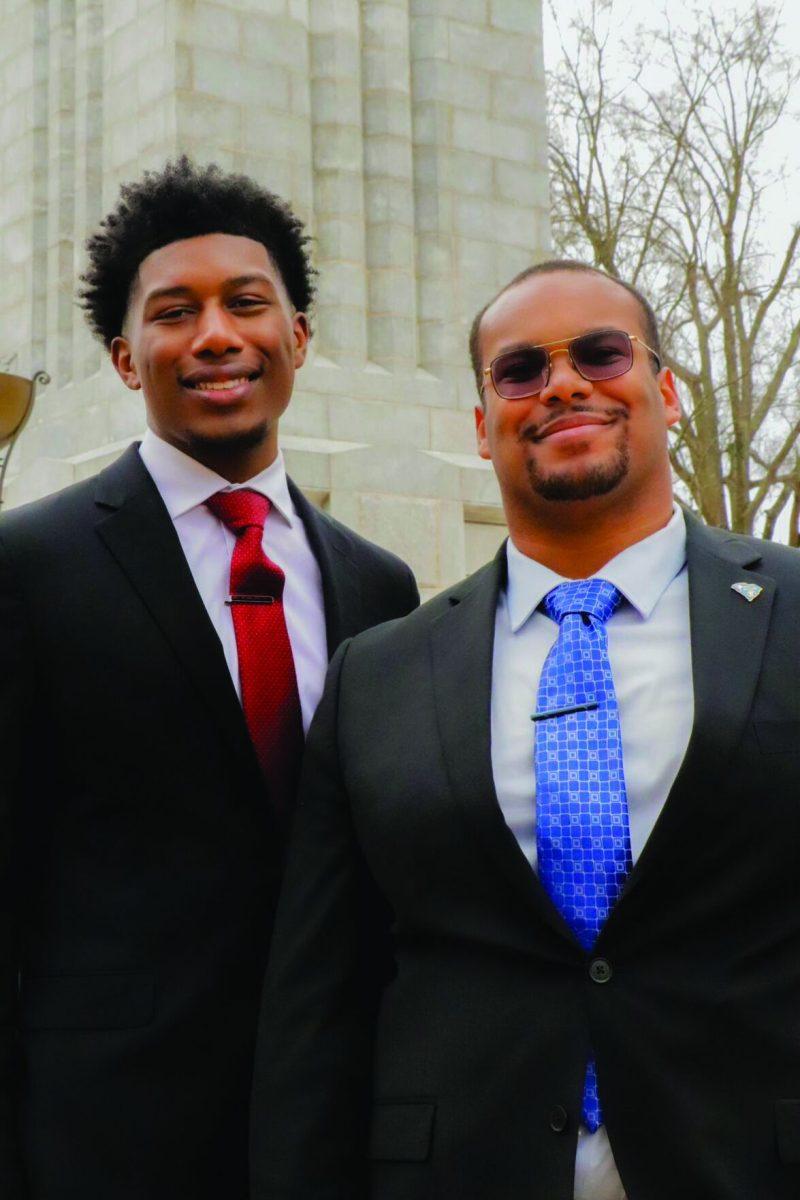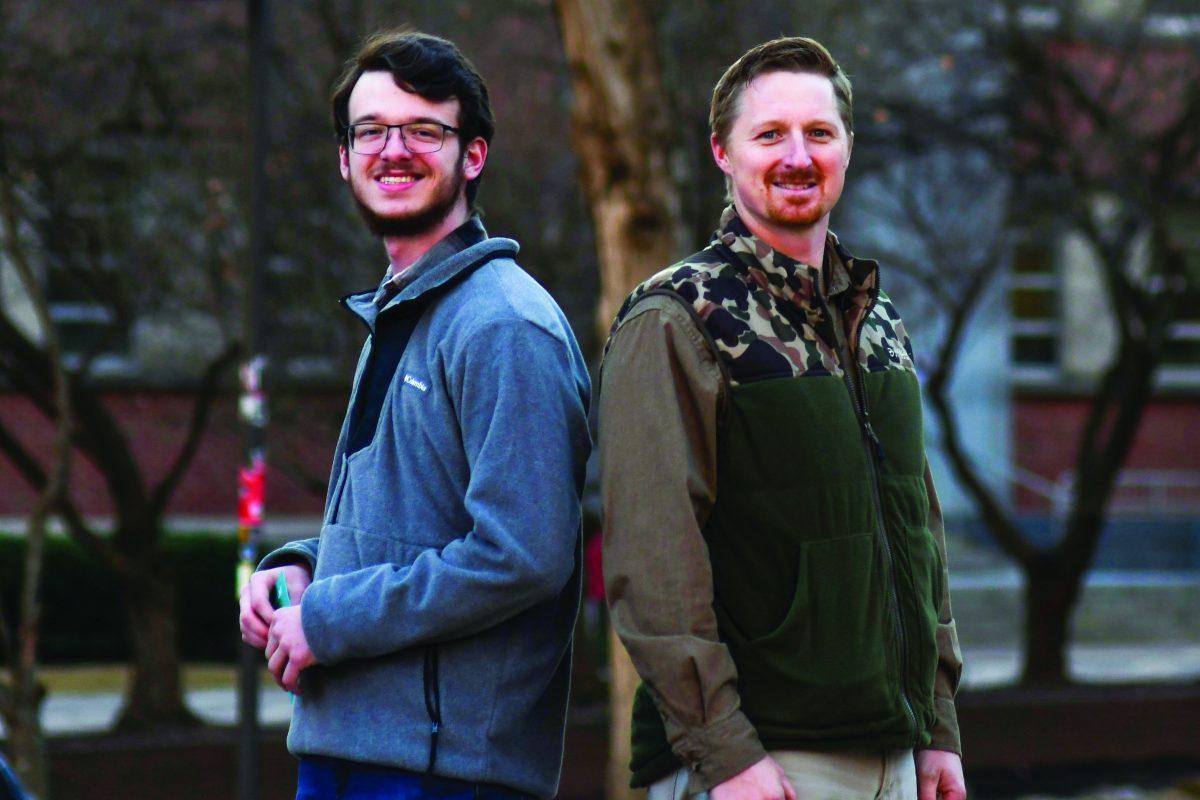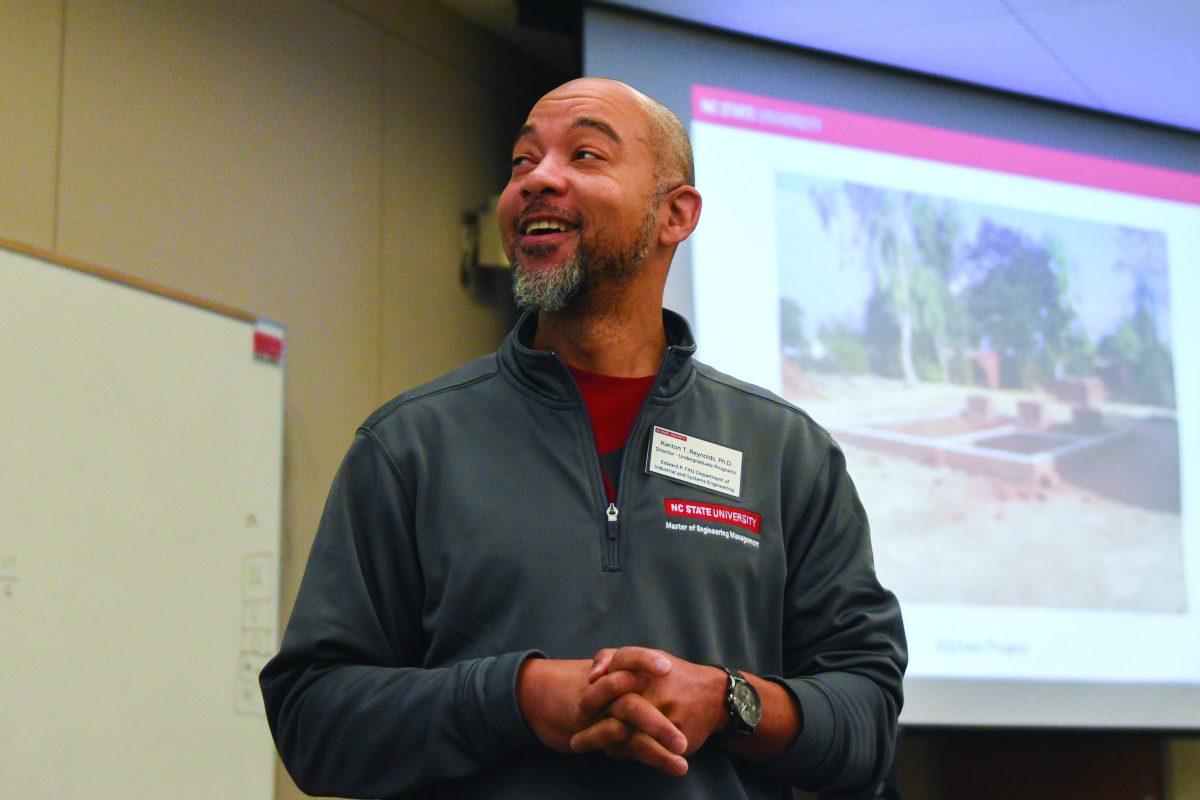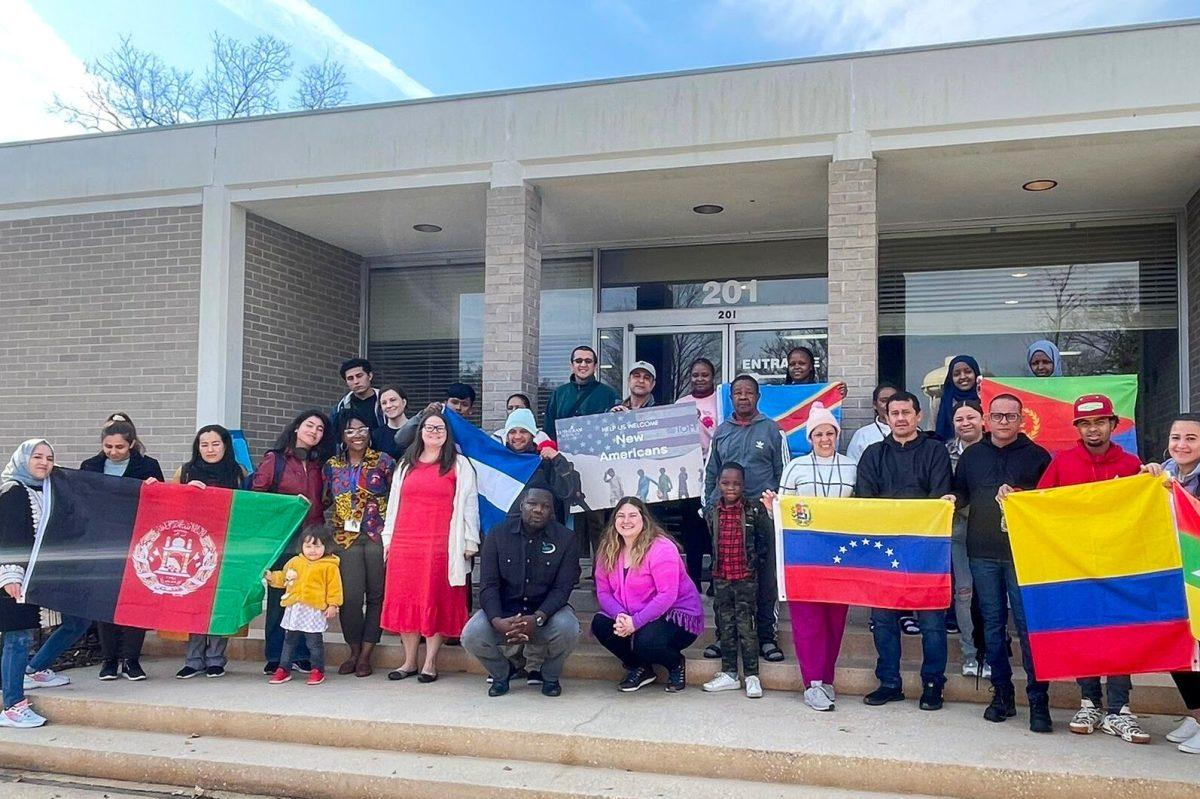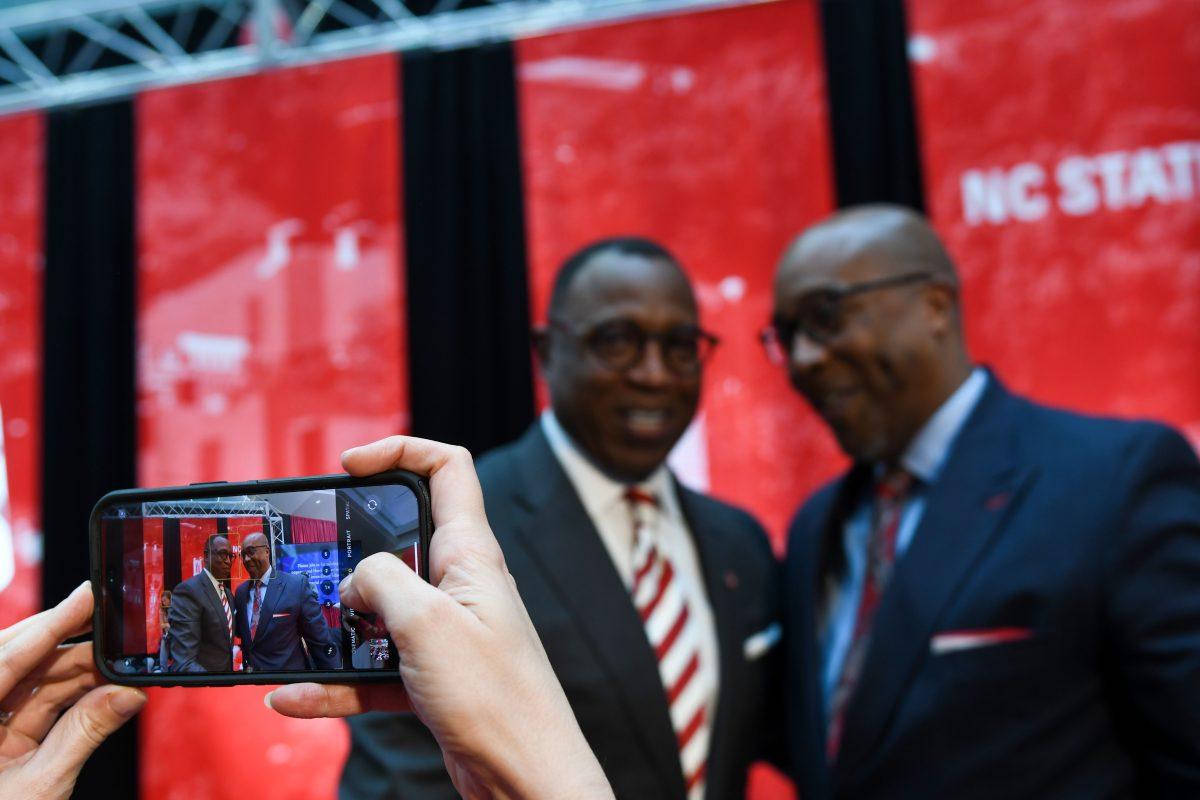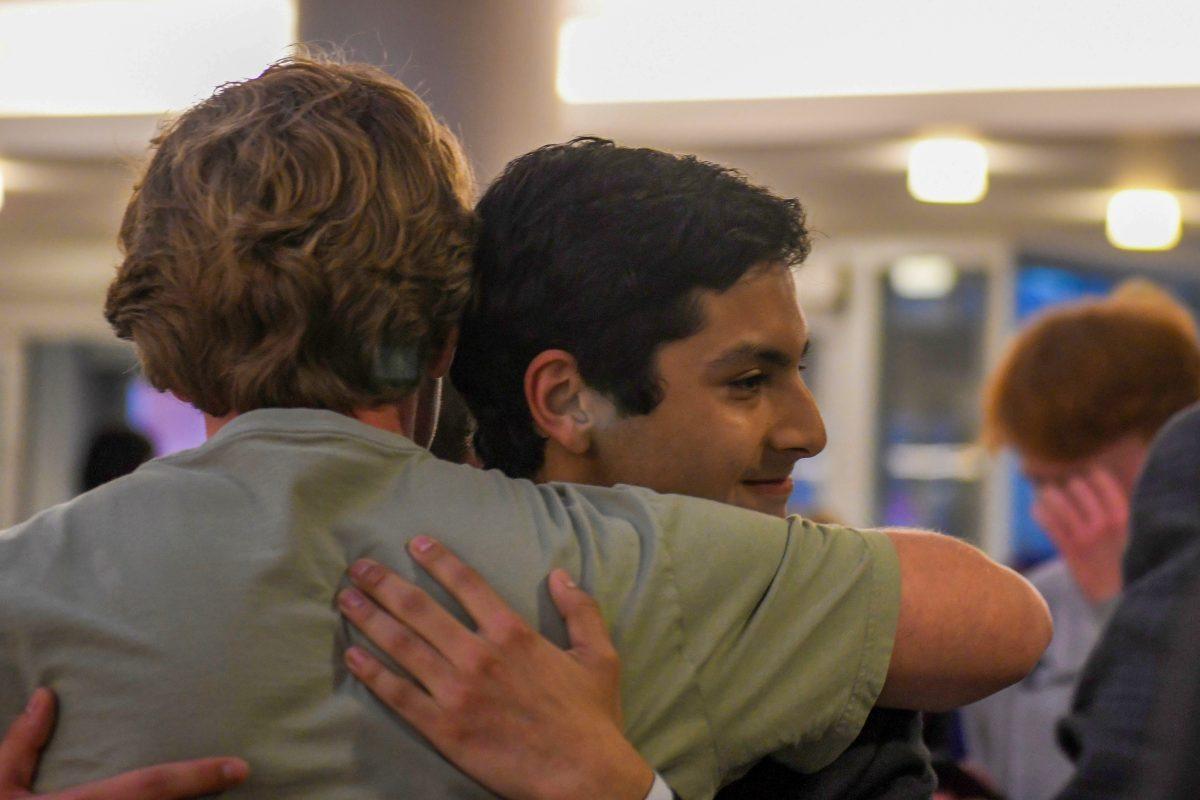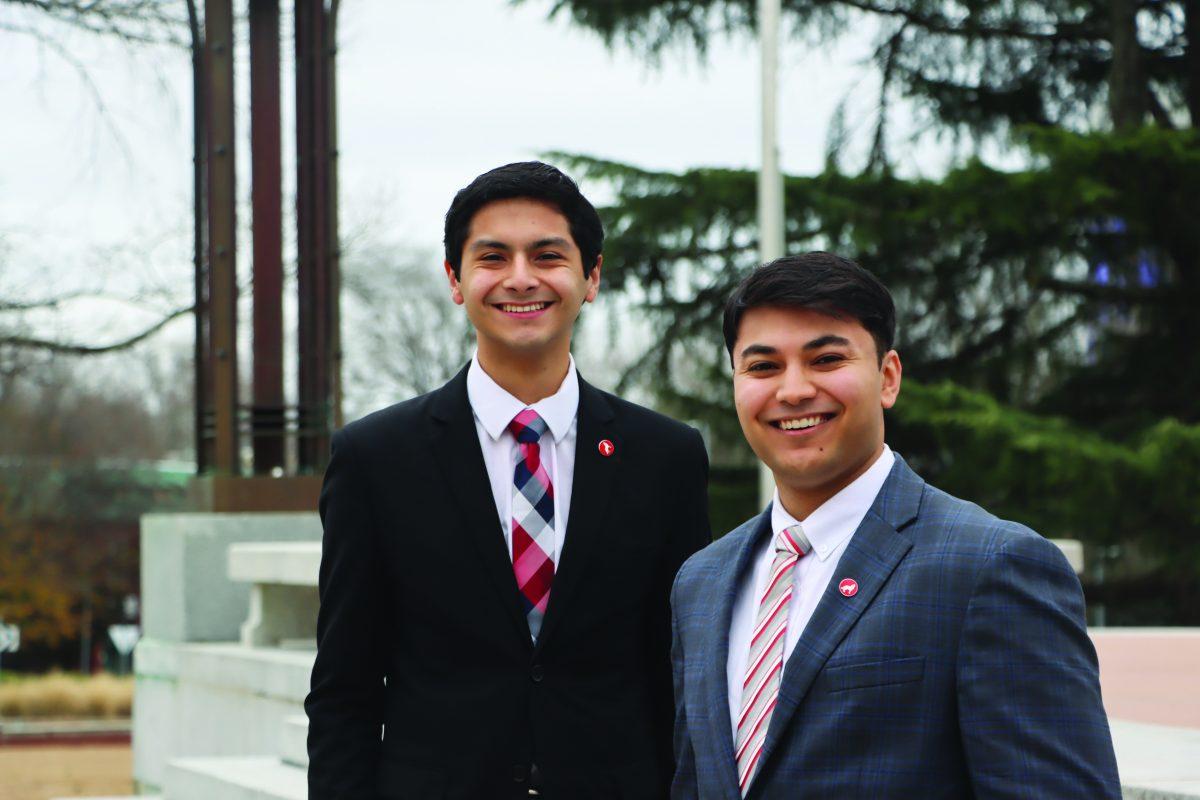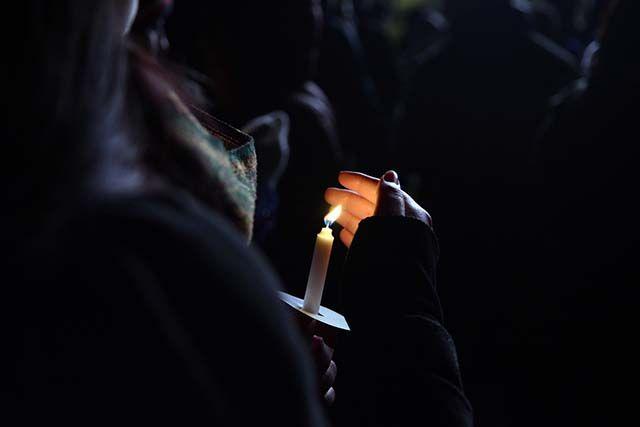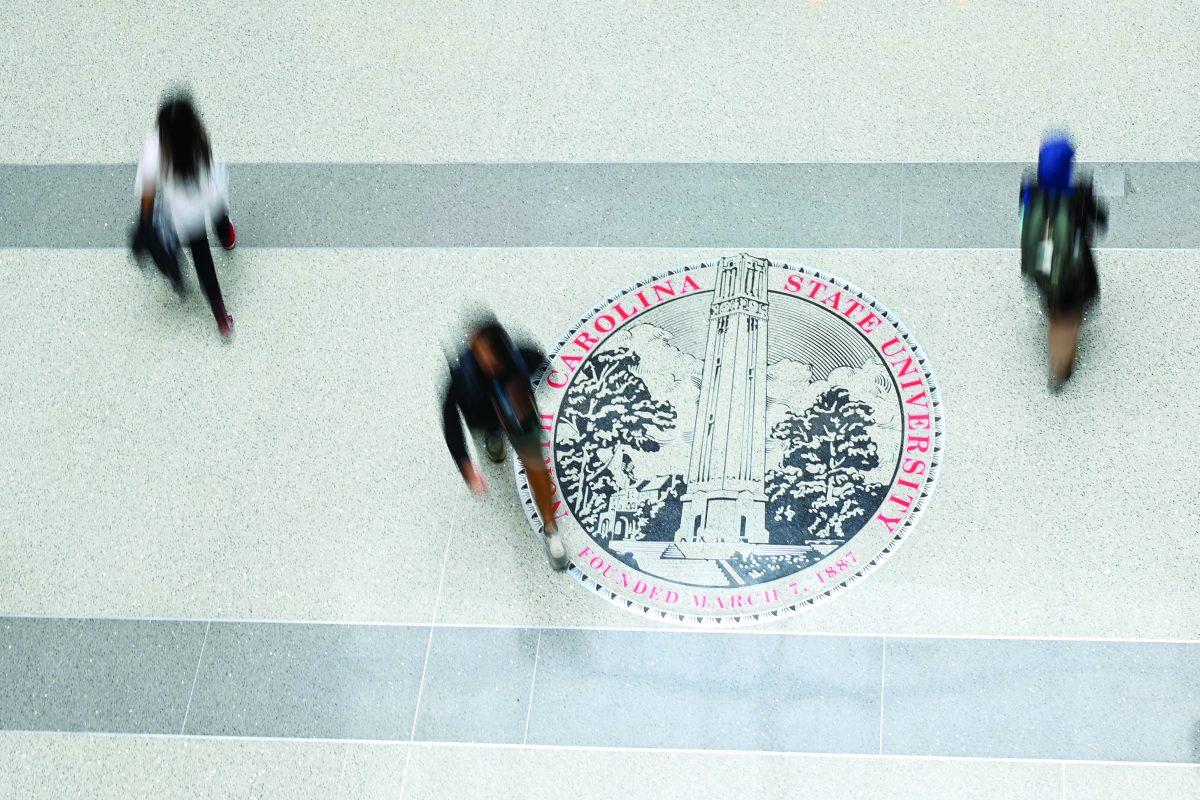Taquan Dewberry, a second-year studying computer science and philosophy and current student senate president pro tempore, is running for student body president for the 105th session of NC State’s Student Government. His running mate is Adam Womble, a third-year studying civil engineering and current director of the Student Government Department of Campus Services.
In the student body president election debate on Monday, the pair positioned themselves as outsiders ready to shake up the status quo — as the last three student body presidents have previously been vice presidents — and deliver tangible results for students.
Dewberry said Student Government finds itself in a perpetual cycle of presidents with similar platforms, with nothing to show for years of effort.
“We have the opportunity to do a lot better in Student Government,” Dewberry said. “And for the last four years, we’ve had, in my opinion, a repeat of the same vision over and over. This time, we have the opportunity to bring an outside perspective and to bring a new vision to NC State, to bring a new approach to student leadership and to let students realize that their voices do matter and that they are being heard again.”
If elected, Dewberry will be the first student body president to work alongside NC State’s next chancellor, and as a member of the Board of Trustees, Dewberry will be responsible for establishing the relationship between Student Government and the new chancellor. Dewberry said he will establish a relationship where Student Government isn’t expected to “placate” and always agree with University administration.
“I think far too often in Student Government, we’ve seen us take a stance in neutrality when it comes to chancellor and administrative relationships,” Dewberry said. “That does not have to be the case. If you look at our organization’s history, it was built on strong, dedicated advocacy. It was built on us taking a stand. A stronger and greater relationship with the chancellor does not mean neutrality. It’s time for our students to take a stand and let the administration know that we can disagree and still work cooperatively together.”
Despite the uncertainty of higher education and diversity, equity and inclusion initiatives in the current political and educational environment, Dewberry stressed the importance of proactive measures.
“We can do something right now,” Dewberry said. “We don’t just have to advocate to them to change it. While we can do that, and we will do that, we can start doing things right now to protect the resources that all of us have. We can band together and make sure that we are taking a collective approach to protecting DEI within our campus, protecting what rights we do have left as students, staff, faculty, administrators — however many. We want to make sure that we are using that voice.”
Womble said the core tenet of the ticket’s plan to protect DEI is to strengthen and stand by organizations that promote DEI practices on campus and empower them to thrive in a potential scenario without University or federal support.
“What we want to do, and what we recognize is the importance of organizations like that, specifically the grassroots formulas … and supporting those from the ground up,” Womble said. “For example, if the high federal situation were happening where [Women and Minority Engineering Programs] were to lose funding, which has been a major concern by those students … at the end of the day, those organizations are supported by student government and by the representatives. And supporting that way, from the grassroots, is our backup plan.”
As a first-year senator, Dewberry initially voted against the fast-track of Resolution 29, which called for a ceasefire in the Israel-Hamas war. Dewberry held a controversialundisclosed meeting in secret with other senators, where the group allegedly planned to strike down the fast-track of R29.
In the next session, however, Dewberry voted in favor of R29 during its second reading and then voted to overturn Student Body President Allison Markert’s veto of the bill.
“I reflected on what happened,” Dewberry said. “And frankly, at the time, what had happened was I acted with all the information I had possible in my role as pro tempore — and the truth is, people in higher student government leadership had more information that I did not have at that time — and when I went back and reviewed everything, reviewed the facts, reviewed what was happening and reviewed what could and couldn’t happen with our administrative relationships, you see that I changed my stance.”
Dewberry said he continues to prioritize transparency.
“The role of the student body president in transparency is to be the most transparent person in the institution to let people know what’s happening,” Dewberry said. “If you’re going to be the most forward-facing person in Student Government, you need to be the most transparent and open and honest person in Student Government, and that’s exactly what I prioritize on day one of the administration.”
In one of the campaign’s first actions, Womble said he plans to leverage his position as director of the Department of Campus Services and past conversations he’s had with NC State dining to put a Senate resolution into motion to voice student support for establishing a C-Store on Centennial Campus, with hopes of providing more accessible dining options to engineering students.
Womble said the ticket will also launch a campaign against sexual assault on campus starting on its first day in office. He stressed collaboration with the Markert administration to create a program that better advertises resources and addresses the issues regarding sexual assault on campus and the work SG is doing to curb them, as well as looking into installing more security cameras around campus.
Dewberry said if his opponent, Isaac Carreno, a third-year studying political science and social work and the current student body vice president, were to win the election, he worries about a lack of action. He said Carreno hasn’t used his current office as effectively as previous student body presidents Timothy Reid and Allison Markert have, in which they established relationships with University Police and the Raleigh City Council.
“The truth is, I think Student Government talks a big game a lot of the time,” Dewberry said. “We’ve talked about making changes on the campus, and for the last couple of years, we’ve heard that from people who have won the election, who have already had the opportunity to make that change. Isaac was the vice president, and as vice president, he has the opportunity to start certain personal projects that he could keep track of. The truth is, we haven’t seen it.”
Ultimately, Dewberry framed the election as a choice between experience and a proven track record of achievement.
“My point is, it doesn’t matter how long you served in the positions,” Dewberry said. “It doesn’t matter how many positions you’ve held. It matters what you do with them. And the truth is, per position that Adam and I have had, we’ve done more. We’ve gotten more done for our student body. We’ve gotten more tangible things accomplished for our student body. We represent student voices at a greater level, provide a strong advocacy and we’ve done it not only in our positions, but through just being representatives on campus. And that’s something we plan to continue to do as student body president and vice president.”
Voting for the election is open March 3 and 4. To vote, head to getinvolved.ncsu.edu.


